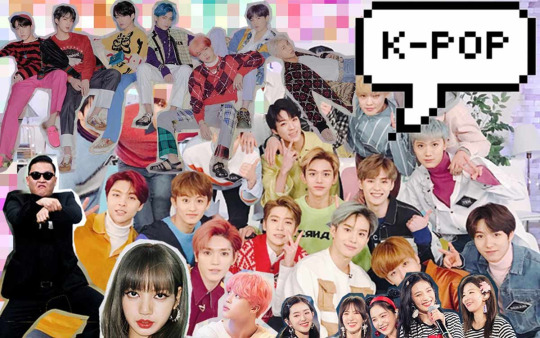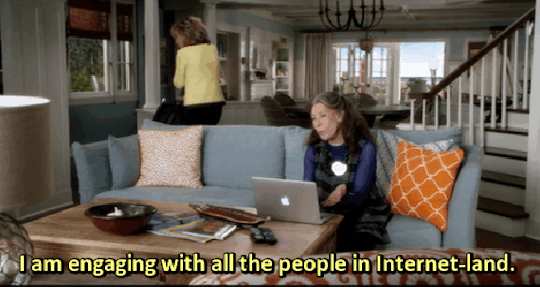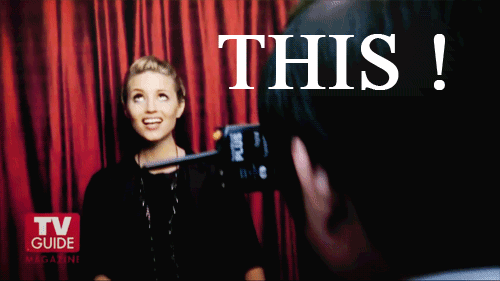Text
How free is Chinese media?
Before President Xi Jinping’s rise to power in China, the internet was a relatively transparent and open platform for discussion. However, in 2016, Xi demanded that the china communist party needs to take control over the internet as the internet will reflect the party’s will, safeguard the authority as well as the party’s unity (Zhou 2020). Then, a collaboration between the government and domestic technology and telecommunications companies compelled to enforce the state’s rules. These projects aim to ensure complete social and political conformity in the real and virtual world.
The Ministry of Public Security department of the Chinese government manages the Golden Shield Project, a project that was launched in 1998 and can also be referred to as the "great firewall of China" (Ahmad 2022). The GFW's main objective is to restrict access to information that complies with their regulations on the Internet within China. Specific websites are blocked, keywords are filtered, and Internet users' activity is tracked to achieve this. Users are unable to access international news websites including the BBC, The New York Times, and The Wall Street Journal, among others, as a result of Great Firewall. Facebook, Google, Twitter, Instagram, Snapchat, Yahoo, and YouTube are just a few of the international web services that are restricted.
It has been reported that more than two million workers are responsible for reviewing internet posts using keyword searches to monitor and censor china’s media (Xu & Albert 2017).
China was ranked 176 out of 180 nations in Reporters Without Borders' 2016 global index of press freedom (Xu & Albert 2017). In order to keep the internet free of opposing viewpoints, China, as is widely known, has its own applications. Virtual private networks, or VPNs, are pieces of software that must be installed by Chinese nationals in order to see or use foreign apps.
The Chinese government has tight control over its app and information spread within its country. They restrict or remove apps and websites that contradict its philosophy. According to government regulations, collaboration in China may comprise censoring or deleting information, leading to some content being shadow banned. The content the Chinese government chooses to block may vary with time, but this amounts to total censorship power. A website may choose to comply with Chinese law, or Chinese law may change and render certain sites incompliant.
Taking google as an example, it has operated in china previously, providing its citizens with information access despite the restrictions it imposed to comply with Chinese censorship policy. However, the IT powerhouse altered its stance after experiencing a cyberattack that was later determined to have originated in China (Juodyte 2022). In response, Google switched all of its Chinese users to the Hong Kong version of their search engine, which is unrestricted. No one was really surprised when Google's services quickly stopped working for consumers in China.
Internet is strictly monitored and silenced, there are ways to jump over the great firewall, but user has to bear the harsh consequences. That is how the internet is like in China.
References:
Ahmad, K 2022, ‘What Is the Great Firewall of China and How Does It Work?’, Make Use Of, viewed 4 December 2022, <https://www.makeuseof.com/what-is-great-firewall-china/>.
Juodyte, E 2022, ‘Which websites and apps are blocked in China?’, NordVPN, 16 March, viewed 4 December 2022, <https://nordvpn.com/blog/blocked-sites-china/>.
Xu, B & Albert, E 2017, ‘Media Censorship in China’, Council on Foreign Relations, viewed 4 December 2022, <https://www.cfr.org/backgrounder/media-censorship-china>.
Zhou, Q 2020, ‘Building the (Fire) Wall: Internet Censorship in the United States and China’, Harvard International Review, viewed 4 December 2022, <https://hir.harvard.edu/building-the-fire-wall/>.
3 notes
·
View notes
Text
What impact did online gaming have on society?

Any game that can be played over the Internet or a computer network is considered to be online gaming. The majority of the time, it refers to online multiplayer video games that include people from all over the globe. Online gambling via a poker room or casino can also be referred to as online gaming (Schurman 2022). Online gaming is growing in popularity for a variety of reasons. The development of gaming industry has attracted many teenagers and adults to view gaming as their necessities instead of a game that they play during their free time. In this blog, we will discover the cons and pros of the impact that gaming brings to the society.
To begin, gaming is actually an opportunity for young people to practice communication, improve thinking skills and conflict resolution skills. Even first-person shooting video games, which might not be suitable for young players or those under 18, teach teamwork, tolerance, and scenario-based learning. Most games involve strategy to comprehend and then comply with the rules. Online games may contribute in the development of cooperation, concentration, communication, commitment, leadership and problem-solving abilities, according to the Australian Office of the eSafety Commissioner, Think U Know UK, and the NZ organization Netsafe (The benefits of playing online games n.d). As stated, games may improve one’s thinking skills as it needs users to be aware of the environment, pay attention to detail, able to solve problems and to have backup plans as well as literacy.
Online gaming is often stereotyped as an isolated game, but it is actually more sociable than people realise. During the pandemic, people have found myriad ways to re-create-in-person socialization opportunities within video games, embracing the freedom of not being bound by geography or physical capabilities. Studies have found that playing video games can lead to more prosocial behaviors which is a behaviour that is positive, helpful, and aimed toward social acceptance (Wiederhold 2021). The shared experiences that social games provide can result in young people who are more inclined to help one another, in both online and real-world settings. In addition, social video games can increase the player's exposure to people from different regions and cultures. This is beneficial during a time when we are not able to socialize in school or to travel.
Although video games are recognized to offer certain advantages, as those described above, when they are used excessively, they may also have downsides. There are several possible risks associated with excessive gaming. Recent advancements have made it possible for gamers to access video games at any time and nearly anyplace, provided they have a play station portable console with them. Due to this, more time has been spent playing games, which might lead to addiction and an internet gaming disorder, associated with sleep loss, insomnia, and irregular circadian rhythms (Heiden, Braun, Muller & Egloff 2019).
In addition, a significant number of scientific research have found that regular exposure to violent video games raises the likelihood of aggressive behavior (Heiden, Braun, Muller & Egloff 2019). Children get normalised to violence as a result of this exposure, leading them to assume that the world is actually meaner and scarier than they actually are. It is frequently claimed that these ideas are difficult to overcome in later years. Kids start to believe that violence, as it is shown in the games, is typical behavior as a result.
The concept of violence in video games may be comparable to that of domestic abuse, where children exposed to violence may either act violently or become victims because they assume that what they encounter is the norm. The rise of these ideas in gamers has the potential to turn them violent and aggressive in the future.
To conclude, online gaming can bring both positive and negative impacts on the society. Users must control the amount of time and content of game they play. Always keep in mind in separating the gaming world from the real world so that addiction and violence could be reduced.
References:
Heiden JM, Braun, B, Muller, KW & Egloff, B 2019, ‘The Association Between Video Gaming and Psychological Functioning’, Original research, Department of Psychosomatic Medicine, University Medical Center, Mainz, Germany.
Schurman, K 2022, ‘What is Online Gaming?’, EasyTechJunkie, 27 October, viewed 26 November 2022, < https://www.easytechjunkie.com/what-is-online-gaming.htm>.
‘The benefits of playing online games’ n.d, Digital Citizenship, viewed 26 November 2022, <https://www.digitalcitizenship.nsw.edu.au/articles/the-benefits-of-playing-online-games>.
Wiederhold, BK 2021, ‘Kids Will Find a Way: The Benefits of Social Video Games’, Cyberpsychology, Behavior and Social Networking, vol. 24, no. 4.
2 notes
·
View notes
Text
How do K-Pop idols interact with fans in this online era?
Many celebrities and idols have been communicating with fans online for years, and the pandemic has led to even more internet engagement. In today’s blog, I will be talking about how kpop idols interact with their fans in this online era. Companies behind some of the greatest K-pop singers are launching a new method of monetizing them in place of social media platforms like Instagram, Twitter, Tiktok, and others, where communication is more one-sided. To give K-pop fans the impression that they have direct access to their idols, several platforms have been created which we will discover more as we go in this blog. This access influences how these fans interact with their idol as a friend and how they interact with other fans.
Here are the apps/platforms that have been said to be “must-have apps for kpop fans’ apart from Instagram, Twitter and Tiktok.

V LIVE
The most well-known Korean broadcasting app, V LIVE, allows users to follow official K-Pop group accounts and watch them in real time. The app was developed by Naver, the most well-known Internet corporation in South Korea and the creator of other well-known apps like LINE for texting. Fans receive notifications for the celebrities they follow, allowing them to instantly access videos and live updates from their favorite stars. As a show of support for the celebrities being streamed live, fans can shoot hearts that are shown on the right side of their screen. Fans won't miss out if they are busy at work because these videos are kept for later. Additionally, they may communicate with one another in group chats! The community is where celebrities and fans interact.
2. Bubble
The app bubble was created by SM Entertainment as a way for their artists to connect with fans (Mashable SEA 2022). Fans pay to gain access to an artist's bubble and view app-exclusive content from their favorite artist. The service provides a private space that looks a lot like a private chat room, connecting fans with the artists they love. When an artist sends text messages, voice messages, photos and videos through this service, all fans who subscribe to the artist’s Bubble receive them. it is a one-to-many messaging service, but users feel like they are communicating one-to-one with the artist. At Bubble, known for its personalized service, fans can access unreleased selfies and other photos uploaded directly by the artists themselves to give fans a peek into their daily routines (Mashable SEA 2022). Idols actively utilize a coded messaging system that allows them to message numerous fans at once, while also having the ability to read and respond to individual messages.
3. WeVerse
An application called WeVerse was developed initially with BigHit Entertainment artists in mind. It's employed to interact with fans, keep them informed about what's happening, and express their feelings. Both BTS and ARMYs may feel secure there (Xian 2022). Through WeVerse, artists may view fan-submitted content and respond to some of the posts in the feed. WeVerse also provides subscriptions with extra perks including exclusive material from the artist for subscribers, exclusive merchandise, early access to concert tickets, and more. Because WeVerse is completely free to use, fans find it to be quite appealing. There are now 31 artists available on WeVerse, including well-known Kpop bands and even Western musicians like Gracie Adams and Jeremy Zucker (Xian 2022).
Offcourse, there are many other amazing apps which I did not include in here, there apps are the ones most downloaded. Do you have other must-have apps for Kpop fans? Feel free to share it with me in the comment section!
References:
Inquivix 2022, ‘V Live – The Most Used Live Platform by K-Pop Artists’, Inquivix, viewed 21 November 2022, <https://inquivix.com/digital-marketing-in-south-korea/v-live/>.
Mashable SEA 2022 ‘A guide to K-pop fan apps’, Mashable SE Asia, viewed 21 November 2022, <https://sea.mashable.com/tech/21245/a-guide-to-k-pop-fan-apps>.
Xian, SL 2022, ‘What is Weverse’, Abc Korea, viewed 22 November 2022, <https://www.abckorea.co/kbuzz/what-is-weverse>.
1 note
·
View note
Text
The power of social media crowdsourcing
What is crowdsourcing
The word "crowdsourcing", which was first used in 2006 by Jeff Howe, a writer for Wired magazine, describes crowdsourcing as a combination of crowds and outsourcing (Pratt & Gonsalves 2017). Crowdsourcing is the method of obtaining information, ideas, or services from a big group of people. These people respond to online requests made via social media, or specific crowdsourcing platforms by submitting their ideas. An example of crowdsourcing would be online reviews such as reviewing restaurants, gyms, or bars on google.

The power of crowdsourcing
Crowdsourcing involves a broader group of people in solving a problem which a company or association could gain access to hundreds or even thousands of different approaches to problem solving. It can be challenging to break a company's habit of doing things in a specific way if it has done so for a long time, so many people are keen on bringing in experts from outside the business to challenge conventional thinking. Therefore, crowdsourcing is the discovery of fresh solutions, unexpected ideas and a greater diversity of thinking.
The platform InnoCentive serves as evidence of this. It has grown into the market-leading company for posting issues online and assisting others in accessing knowledge from across the world, with more than 500,000 problem-solvers worldwide. A global network of approximately 500,000 professional problem-solvers, including CEOs, PhD applicants, engineers, scientists, business executives, and retired technologists, has been developed by InnoCentive.
Second, crowdsourcing is about discovering ideas as rapidly as you can, in addition to accessing the greatest idea. Companies may acquire outstanding ideas in much less time by involving a larger group of individuals in the process. This might be the deciding factor in the success of time-sensitive undertakings like medical research or urgent software fixes. This project would probably still be in its early stages now if crowdsourcing this effort among several universities hadn't been used. That is crowdsourcing's power. This project would probably still be in its early stages now if crowdsourcing had not been used.
Companies and organizations frequently use crowdsourcing to expand their operations. Crowdsourcing may occasionally even be used to identify potential vendors, workers, or suppliers. When seeking support, advice, and finance, young business owners frequently turn to crowdsourcing. Crowdsourcing may help firms of all sizes, however, expand. A business may benefit from online crowdsourcing in a variety of ways, including investments, ideas, new partners, data, talent, and problem-solving. One might use crowdsourcing as a different type of financing for their own business. Instead of making an investor pitch or asking a business loan, you may utilize crowdsourcing to persuade others to invest in your company for whatever reason.
Therefore, social media crowdsourcing can be more powerful than we ever know. It has played a critical role in many businesses.

References:
Pratt, MK, Gonsalves, C 2017, ‘Crowdsourcing’, Techtarget, viewed 13 November, <https://www.techtarget.com/searchcio/definition/crowdsourcing>.
Tanski-phillips, M 2021, ‘What Is Crowdsourcing, and How Can You Use it to Grow Your Business?’, Patriot, 22 June, viewed 13 November, <https://www.patriotsoftware.com/blog/accounting/crowdsourcing-business-growth/>.
0 notes
Text
Is social media toxic for one’s mental health?
Have you realized that the more time we spend on social media, the more we compare ourselves socially?

According to studies, as a result of their growing usage of Facebook and Instagram, people socially compare themselves more. This social comparison is linked to a number of issues, including lower self-esteem and higher social anxiety. Here are a few things that may cause a girl to feel stressed out.
Using filters on social media
Filters allows us to improve our look while giving the idea that we are prettier than other people. Therefore, many girls are bombarded with their friends posting the most perfect pictures of themselves, or they’re following celebrities and influencers who do a lot of Photoshopping and have makeup and hair teams. It then leads to one being attached and used to using filter on their face, so if they do not have any filters available, they might not feel like taking any pictures or may dislike their face for not being as pretty as how they would normally look like with filters on.

2. Driving for likes and followers
One disturbing trend that I have noticed lately is how obsessed people are with social media number. It seems like everyone wants to be famous, seeking for more likes and followers. If their posts are getting lesser likes than usual or they see their followers decreasing, they tend to get upset and it affects their mood.
3. Receiving comments from the public
Since almost everyone can comment on their opinions, many of them often throw hate or nasty comments criticizing girls’ bodies and their visuals. The comment sections are toxic.
So what can it cause?
The impact on mental health
Social media may trigger feelings of inadequacy. People may feel as though their life or appearance does not compare favorably with that of others on social media, leading to feelings of envy and dissatisfaction.
One's fear of missing out may grow as a result of social networking. Through highlighting the ongoing trend can generate emotions of anxiety, loneliness, and inadequacy. This pushes users to keep constantly engaged and up to date out of a fear of being left out. People are social creatures that want contact in groups, therefore feeling excluded can have negative psychological effects.
low sense of self-worth as a result of image editing on photo-sharing websites. It's arguable that the idea of the idealized body image has hurt people's self-esteem and perceptions, especially young women. Unrealistic expectations of how young people should act and appear are promoted by the constant circulation of widely accessible, altered pictures. Since nine out of ten girls claim they are unhappy with their appearance.

If you spend a lot of time on social sites and have been experiencing increased feelings of anxiety, loneliness, sadness, or frustration, now is the time to reexamine your relationship with social media. Although social media is beneficial in keeping us connected, it is important that we take a break and hard look at social media and mental health.
0 notes
Text
Is online activism better?
Online activism, usually referred to as digital activism, is a type of activism that relies on the Internet and digital media to mobilise people and take political action. Given its ability to instantly reach large audiences across borders, the Internet was embraced by online activists as a tool for information delivery. Email campaigns and social media activism are two examples of digital activism.

We will first talk about the advantages of online activism. Firstly, online activism is inexpensive and cost effective in which it makes it possible for people and organization with limited financial means to run a global digital campaign almost for free. Online activism can be held on websites or on social media.
Secondly, it is believed that the Internet represents globalisation and enables local initiatives to be viewed on a larger scale. It enables information to be quickly shared with a big audience. The transformative effects of the internet on society are being shown by online activism. There are numerous examples of successful online petitions. Significant discussion and awareness are sparked by it. If social media campaigns go viral, it is a very effective way to raise money, as many successful viral campaigns can attest to.
For instance, the ALS ice bucket challenge, which aims to increase awareness of the disease ALS amyotrophic lateral sclerosis, is one of the movements and trends that have become part of the national and international debate on the internet. The ALS Ice Bucket Challenge has quickly gone from a fundraising campaign to a viral Internet sensation, raising up to 115 million dollars (Trejos 2017). Not only that, but the Black Lives Matter movement also started as an online community. Thanks to the hashtag and social media platforms, the online community was able to organise, mobilise, and increase its visibility. Ultimately, it developed into an organisation with more than 40 chapters that supports black lives.

However, online activism can be misleading. Without fully grasping the issues at hand, many people share stories about a subject, which frequently results in the propagation of false information. Additionally, fake accounts lurk on social media, and some of these profiles have fake donation sites, defrauding money from those who are trying to do good deeds and diverting attention from a problem to unreliable answers.
To conclude, I think online activism is better and more efficient. Digital activism has transformed the way events, protests and movements are organised, helping to mobilise supporters and raise awareness of a diverse range of causes.
References:
Trejos, A 2017, ‘Ice Bucket Challenge: 5 things you should know’, USA Today, 3 July, viewed 14 October, <https://www.usatoday.com/story/news/2017/07/03/ice-bucket-challenge-5-things-you-should-know/448006001/>.
1 note
·
View note
Text
How does social media affect politics?

Background
Social media is differentiated by its connectivity, interaction, and user-generated content (Reliance On Social Media In Today’s Society 2012). Social networking services like Facebook, Twitter, Tumblr, Blogger, and LinkedIn have become essential everyday activities in today's culture in which it is frequently utilised for decision-making, news and information access, and social engagement. It is a useful tool for sharing, creating, and disseminating information as well as for communicating with people locally and internationally. Our society is now much more informed about global events and news thanks to social media's effectiveness.
So how does it affect politics?
Firstly, social media has affected politics in a way that it can increase awareness and spread news faster than previously. Online news is a continuous phenomena, unlike the days before the internet when people had to wait for the following newspaper or TV newscast to get the most recent news. Now news can be accessed on many websites or social media at anytime and anywhere. People could share posts on the latest politics news they saw on Facebook or Instagram which then lead to more people getting aware of the current situation which they might not even know or pay attention to previously. For me, I do not pay much attention to politics but social media has led me to being more aware and gained deeper knowledge as more and more people are sharing their opinion and views on some political issues, not only that, memes posted also led me to wanting to understand, and to follow up with the current issue. Whenever I see a political meme, I will search it up to know the story behind this meme. It catches attention easily.
Secondly, social media has a hidden force which is bias. On social media platforms, the algorithm could convey the idea that everyone shares the same views. If, for instance, you have a limited number of Facebook friends and 90% of them share your beliefs on the majority of political issues, the information you receive will be biased (Satterfield 2020). They'll reaffirm your existing beliefs by reinforcing them. It modifies how people choose who to vote for. Accordingly, through tens of thousands of prejudiced posts, particularly in the last month before the election, social media heightened the pressure (Husami 2022). As a result, many people's perspectives on political matters change, which alters their candidate preferences and encourages previously reluctant voters to cast ballots.
Thirdly, politicians are able to interact with voters more easily on social media. In the past, you had to go to a live event if you wanted to meet a politician or candidate. Not everyone has this ability. Nowadays, you may participate in live streaming events and communicate with candidates and politicians by attending virtual events. This enables a more personalized and accessible way than press conferences, television appearances, or ads (Satterfield 2020).
Lastly, elections may be directly influenced by social media through voting. This can be supported when Barack Obama used networking sites in his first presidential campaign to mobilise people and win the 2008 election. During Obama's first campaign, an estimated 74% of internet users reportedly followed election news online (Husami 2022).
Conclusion
To conclude, the way that individuals vote has been significantly influenced by social media in many aspects of their life. Election outcomes, political problems, and candidate debates have all changed as a result of this.
References:
Husami, K 2022, ‘How Does Social Media Affect Elections?’, Insidetelecom, 12 May, viewed 8 October 2022, <https://insidetelecom.com/how-does-social-media-affect-elections/>.
Reliance On Social Media In Today’s Society 2012, InSegment, 25 June, viewed 8 October 2022, <https://www.insegment.com/blog/reliance-on-social-media-in-todays-society/>.
Satterfield, H 2020, ‘How Social Media Affects Politics’, Meltwater, 11 March, viewed 8 October 2022, <https://www.meltwater.com/en/blog/social-media-affects-politics#>.
1 note
·
View note
Text
Is blogging still relevant in the age of TikToks and Instagram?
What is a blog?
Back in 1994, a personal journal known as a blog was first published online. Blog is defined as a website that serves as an online journal or informative resource. It presents content in reverse chronological order, with the most recent postings showing first (Minaev 2020). It provides a platform for people to express their opinions on specific topics.
Is blogging dead?
However, around 2014, there seem to be a decline in the number of active bloggers with the rise of Tiktok and Instagram. Tiktok is a 15-second video sharing app that enables users to make and share films on any subject. The most commonly seen content on tiktok are dance videos, dialogue re-enactments, cute animal videos, ASMR and comedy content. It is rare to see writing based content. On the other hand, Instagram is a photo and video sharing app. Instagram was designed from the beginning to be a platform for sharing routine stuff. A picture of your meal, a picture of you with the girls in the restroom of a club. Those kinds of things.
Some bloggers have entirely quit using their sites and switched over to social media platforms due to its convenience. If it's done well, a post has the potential to swiftly spread across large social networks and if it goes viral, it will have a larger readership and social influence (Melanie 2019).
Blogs VS Social media platforms
Although I enjoy reading blogs and seeing photos as a type of communication, they just do not have the same impact. Social media posts have a brief lifespan since everyone rapidly moves on to the next item (Melanie 2019). Around the world, millions of postings are made every day, yet they seldom provide material that is relevant in the long run. Compared to social network updates, blog posts provide websites with more timely content over time. Since social media posts are situational and event-driven, their content typically changes quickly. Blogging postings may be read independently as standalone experiences as long as the post's topic is still relevant. As a result, it becomes a trustworthy resource for readers to learn more about a certain topic.
Besides that, since blog entries are often lengthier, it is feasible to illustrate a topic with greater detail. Reels and TikTok videos can only represent a certain amount of information because to their strict time and length constraints. Blogs accept text, photographs, videos, and other forms, thus, blogs may be utilised to spread the word more effectively across a range of media. A blog post's ability to cover every aspect of a subject in one entry makes it a more comprehensive and helpful resource for readers (Melanie 2019). Additionally, media elites such as editors, publishers, and reporters rely and consume political blogs to write news. The fact that so many newspapers, networks, and magazines now have their own blogs shows that the industry is aware of the format (Farrell & Drezner 2008).
Not only that, if we posted something against the guidelines on Instagram and Tiktok these social media platforms, we might get shadow banned such as content being taken down completely or posts to be hidden and restricted (Thomas 2021) meanwhile, most blogs are self-hosted which indicates that a blogger has full control in owning and managing the blog (Aravindhan 2022). This prevents some sensitive topics being shadow banned as well as not getting the amount of attention it should get.
Conclusion
Therefore, in my opinion, blogging is still relevant in the age of Tiktok and Instagram as these platforms cannot entirely replace blogs. A Blog does play an important role in our life.
References:
Aravindhan 2022, ‘What is Self hosting Website? Advantages and Disadvantages’, Seekahost, 5 January, viewed 29 September 2022, <https://www.seekahost.in/self-hosting-website/>.
Corrine 2021, ‘Is Blogging Dead? The Rise Of Instagram And TikTok’, Skinnedcartree, 3 April, viewed 29 September 2022, <https://skinnedcartree.com/2021/04/is-blogging-dead-the-rise-of-instagram-and-tiktok.html>.
Farrell, H & Drezner, DW 2008, ‘The power and politics of blogs’, Public Choice, viewed 29 September 2022, <https://www.researchgate.net/publication/226771010_The_Power_and_Politics_of_Blogs>.
Minaev, A 2022, ‘What is a Blog? – Definition of Terms Blog, Blogging, and Blogger’, First Site Guide, 26 July, viewed 29 September 2022, <https://firstsiteguide.com/what-is-blog/>.
‘6 Reasons That Make Blogs Remain Relevant In The Age Of Reels And TikTok’ 2022, Beyond the Panorama, 5 August, viewed 29 September 2022, <https://skinnedcartree.com/2021/04/is-blogging-dead-the-rise-of-instagram-and-tiktok.html>.
Thomas, M 2021, ‘Does Instagram Shadowban Accounts?’, Later, 16 November, viewed 29 September 2022, <https://later.com/blog/instagram-shadowban/>.
0 notes